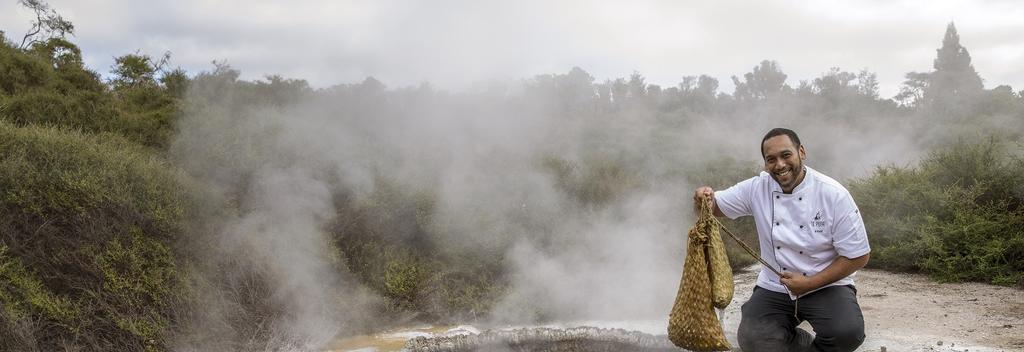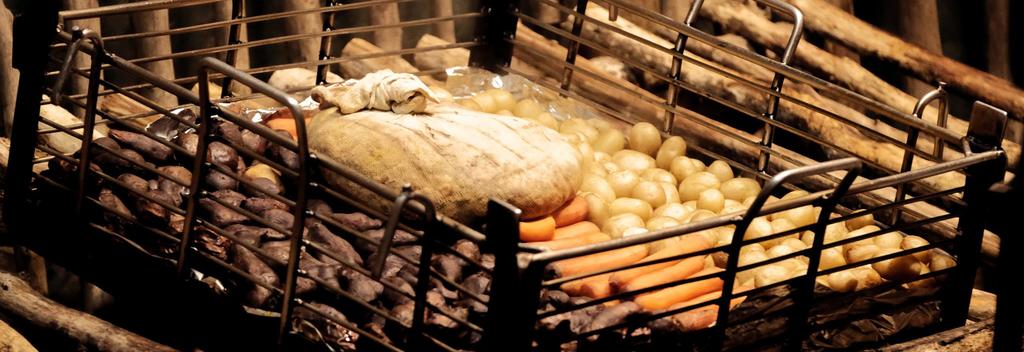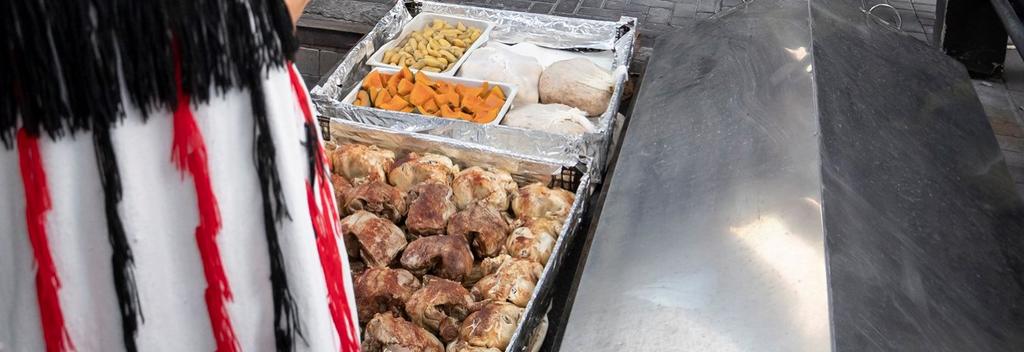

Māori traditionally cooked in underground steam ovens called ‘hāngī', a tasty and authentic method of cooking which can be enjoyed at restaurants and takeaways across Aotearoa.


In traditional hāngī cooking, food such as fish and kumara (sweet potato), were cooked in a pit dug in the ground. Today, pork, lamb, potato, pumpkin and cabbage are also included.
Hāngī was traditionally wrapped in flax leaves, but a modern Hāngī is more likely to use mutton cloth, aluminium foil and wire baskets.
The baskets are placed on hot stones at the bottom of a hole dug into the ground. The food is covered with a wet cloth and a mound of dirt that traps the heat from the stones.
The Hāngī is left in the ground for about three to four hours, depending on the amount of food. The result of this process is tender meat and delicious vegetables, infused with smoky, earthy flavours.
Good food is central to the spirit of manaakitanga (hospitality). There are few experiences that rival sharing a feast cooked in a traditional Maori hāngī (earth oven), a centuries-old cooking method perfect for feeding a crowd and bringing a community together.


Experiencing a Hāngī is a great way to experience Māori culture, as it is not only a means of cooking food, but also a social occasion.
Rotorua is a region rich in Māori culture and heritage. The unique geothermal properties of the area also mean local iwi (tribes) have a unique way of cooking hāngī - in natural thermal steam and water.
Visit the Whakarewarewa Living Māori Village, Tamaki Māori Village or Te Puia for a delicious steam hāngī experience.
The Waitangi Treaty Grounds hangi and concert experience is a special dining experience including a hāngi followed by a cultural performance.
You can experience traditional hāngī food right in the middle of Auckland. Visit the Māori Kitchen for authentic hāngī cooked traditionally seven days a week.